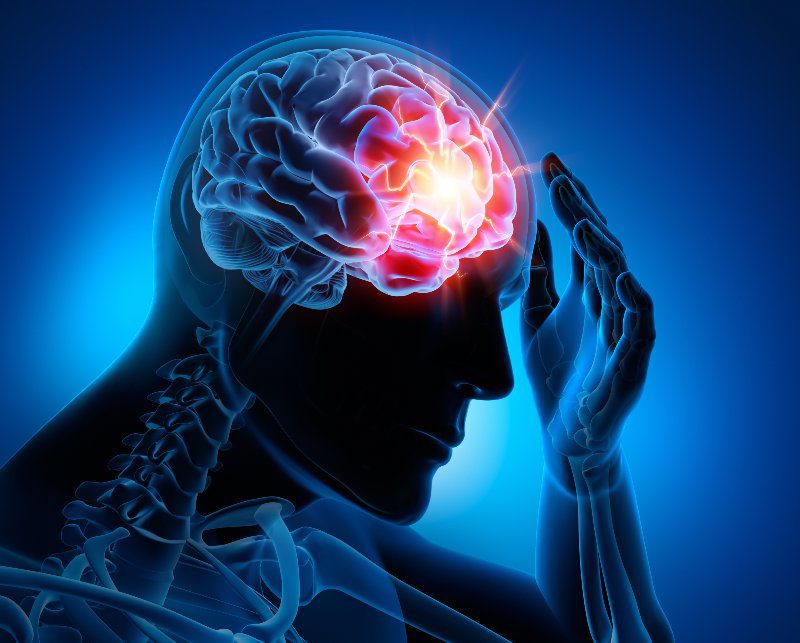Is There a Link Between PTSD and Migraines?
By Elizabeth Crain
7/22/2022
Living with PTSD can be stressful enough on its own, but when recurring migraines start showing up as well, it can make navigating day to day life even more difficult and challenging. Few people discuss the link between these two frequently occurring afflictions, but there is reason to believe there’s a strong connection. A 2015 study found that individuals with both PTSD and migraines “may be particularly prone to adverse financial, health, and interpersonal burdens.”

PTSD & Migraines
Though headaches don’t receive the same kind of attention in terms of mental health, when daily migraines plague you, it’s important to identify the cause, which could be related to your overall mental health.
Having PTSD means being at a higher risk of developing different health issues. Pain is one of those, and headaches or migraines are a significant source of intense pain for many individuals. In this blog, we will analyze the link between PTSD and migraines and provide information that can help Veterans – just like you – take the next step towards healing.
What is Post-Traumatic Stress Disorder (PTSD)?

Post-traumatic stress disorder (PTSD) develops when an individual witnesses a shocking, dangerous, or frightening event.
While it’s normal to feel afraid during traumatic situations, those who feel affected for a long time afterward may be diagnosed with PTSD.
PTSD is characterized by people who feel stressed or frightened, even when they aren’t in danger. This is a common affliction for Veterans who saw combat. Ongoing, chronic PTSD is when someone regularly experiences symptoms for years after the event.
What is a Migraine?

A migraine is an intense headache that causes severe, throbbing pain (typically on one side of the head).
It can also be accompanied by nausea, vomiting, and sensitivity to light and sound. These attacks often last longer than your average headache, anywhere from hours to multiple days.
Migraine pain can be severe to the point of disability. It can be extremely frustrating when you experience them frequently enough to interfere with your daily activities.
Can PTSD Cause Migraines?

Having PTSD can be linked to an increased risk for migraines.
The stress of an PTSD episode can push your body to develop different types of headaches, which may escalate into migraines. While daily headaches can be a nuisance and hinderance to your daily life, migraines are more likely to stop you in your tracks.

People are typically prone to migraines before developing PTSD, meaning that it is not the underlying cause. Healthcare experts still haven’t figured out the exact cause of migraines, but they believe a genetic component is involved. So while it is not the direct cause, it is a possibility that PTSD triggers migraines.
Is that possibility enough? There is precedence for the VA ruling that migraines can be secondary to service-connected PTSD.
The intensity of your migraines could also be linked to the severity of your PTSD. These painful occurrences could provide healthcare professionals with additional information to better treat your other symptoms in a best-case scenario.
How to Manage Your Migraines

Managing your migraines can feel overwhelming. If your daily life is continually put on hold due to persistent headaches, there are ways to manage your pain levels.
Managing migraines secondary to PTSD can help reduce triggers in the long run. Options like cognitive behavioral therapy can be helpful to reduce stress. Diagnosing PTSD can also go a long way toward significantly reducing migraines. Receiving a diagnosis means that you’re one step closer to understanding what is going on internally and how you can move forward with treatment.
Treating both PTSD and migraines is the best way to reach a solution. Getting a diagnosis is the first step, and from there you can reach out to a healthcare professional for recurring treatment.
In the meantime, here are a few ways to manage your migraines naturally:
- Water. Drinking enough water is a natural way to reduce migraines. Dehydration can lead to flare-ups, so be sure to keep up on your water intake.
- Cold compress. While cold and warm compresses can be used, a cold compress is usually the best option. Be sure to place a cloth between your skin and the ice pack for protection.
- Ginger tea. This herbal tea has been shown to have a similar effect to traditional medication when treating migraines.
Schedule an Appointment with Telemedica
What else can you do for your PTSD and migraines?
The first step to getting help is a diagnosis. Telemedica offers services to assess your symptoms and provide you with an accurate diagnosis from trusted professionals. Book an appointment today to start on the road to recovery. Additionally, if you have a diagnosis for a headache condition and feel it may be connected to service or a service connected condition, you may consider a Nexus Letter from Telemedica as well.
If you are a Veteran in need of recurring therapy tailored to your specific needs, you can book a recurring therapy session with us today!

This blog has been verified by Telemedica’s lead Nexus Team provider Tara Thompson (PA-C; MPAS). The information provided here is factual, up to date, and approved by our professionals.
To learn more about our team of providers, click here.